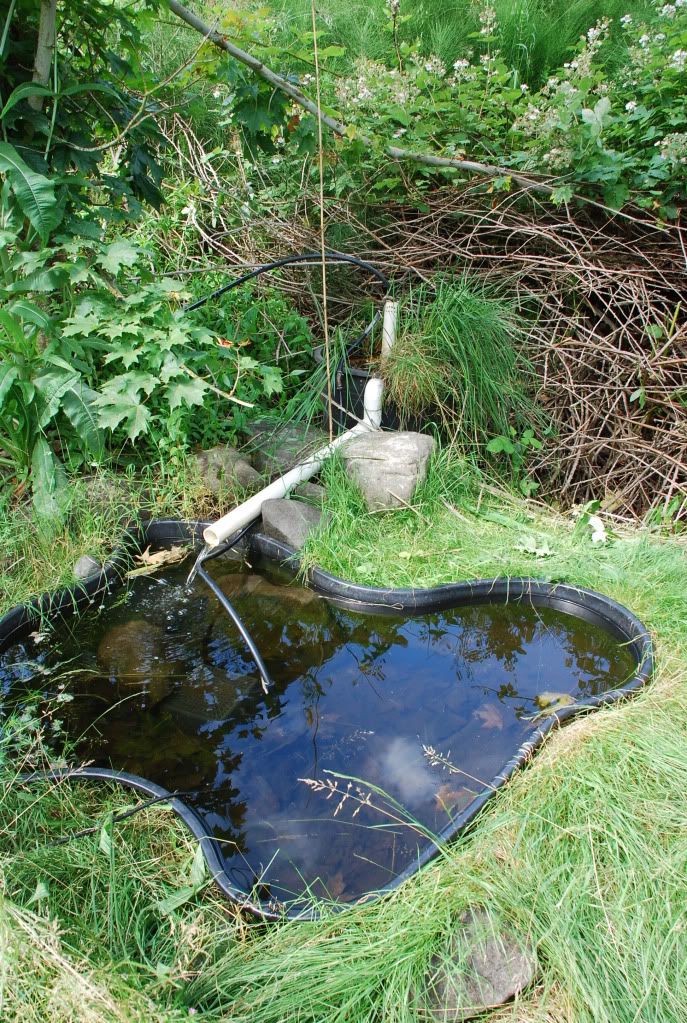I have a small preformed pond + homemade biofilter that I have had in my yard for about 12 years:
https://permies.com/t/4468/homestead/pond-biofilter

I put it there because:
1. I wanted to attract wildlife. I especially wanted to see if I could attract bats (which I don't think it did, but it attracts just about everything else, especially birds).
2. I wanted a small pond to experiment with.
3. I wanted to play with a complete little ecosystem. If I were king, every kid would have a pond in their backyard and several at school. There is just an amazing amount to observe in a natural pond.
4. It was dirt cheap because it had a small hole in it (which I repaired with a glue gun).
Overall the pond was a great success, and I am about to put in a few more.
The greatest thing about ponds IMHO is water plants, because the water plants basically require no care (I mostly have plants in pots in the top of the biofilter). They look great all spring, summer & fall, even when the rest of the yard is basically dead due to our summer droughts. I never fertilize them, the creatures in the pond take care of that for me. I do have to add a bit of additional water July-mid Sept, and I put in a recirculating pump April-Sept. to keep from breeding mosquitoes (I don't want fish). I have cleaned the pond twice and the biofilter once in 12 years, but now I don't think that was necessary. So the only inputs are 1) a bit of water (maybe 40 gallons) and 2) about $15 worth of electricity. I have never moved anything alive into the pond except for the plants, and one stupid experiment with duckweed (which I later carefully removed). All the life in the pond showed up on its own. And there is a LOT of life in the pond.
I don't want fish in the pond because:
1. I don't want to attract fish predators (mostly raccoons)
2. I don't want to have to feed fish
3. I don't want the pond ecosystem to have to deal with fish waste
As far as size, I think it can be whatever you want, it depends on your goals. One of my main goals is "lots of life with little or no maintenance" so I am converting a fair amount of my yard to ponds/wetlands.
The only downsides that I have experienced are:
1. My pump finally died and I took too long to replace it and ended up hatching mosquitoes one year. But I think my little pond has very little influence on whether the mosquitoes are "bad" in my yard. The weather is really the only factor determining how much blood I involuntarily donate.
2. Occasionally raccoons will overturn things in the pond, especially potted plants. I have learned to put a lot of gravel in the pots which makes them a lot heavier.
3. I wanted to see what it would be like to have some duckweed in the pond so I brought a handful home and put it in the pond. In a matter of days it completely covered the surface and any creature that touched the surface. I decided I didn't like that because I could not see anything in the pond, so I used a strainer to strain it all out over a period of several weeks. If you get every little bit, it does not come back. Although I suppose a duck could bring it back but I have never seen a duck try to use my little pond.
4. The pond does of course attract frogs. Frogs can be VERY loud during mating season. Some people around here don't like ponds for that reason. Fortunately we have a large yard so the pond is not near any houses. Here are some recordings I made of of frogs in the pond:
http://www.freesound.org/search/?q=pacific+chorus+frogs&f=&s=num_downloads+desc&advanced=0 (use headphones if you have them - most are recorded binaurally). You should decide if you can handle that sound most nights all spring.





























 1
1



















